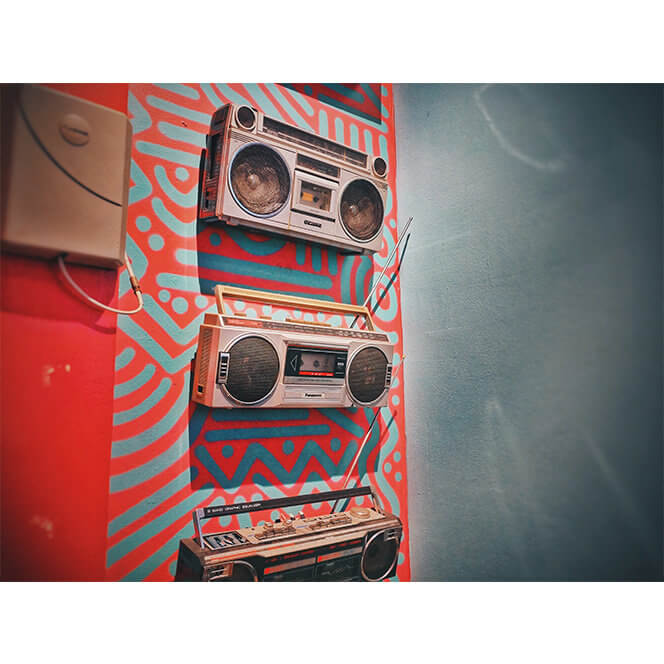In January 2020 we had project partners in place, a budget and artist residencies ready to begin; but then the COVID-19 pandemic reached the UK. As the Arts sector ground to a halt and artists’ and arts organisations’ pre-existing precarities were brought starkly to light, a need to radically rethink the Hip Hop Pedagogy and Power project became just one of many dilemmas our project team now urgently needed to address.
The Hip Hop Pedagogy and Power project was originally co-created by Counterpoints Arts, Tate Exchange, Tate Archive, The Open University Citizenship and Governance Strategic Research Area, and Plymouth College of Art, to invite three resident artists, Shay D, AWATE and Big Zuu, mentored by dramaturge, Hassan Mahamdallie, to speak back to and reimagine the idea of the archive; inserting new perspectives and retrieving silenced voices and cultural viewpoints by engaging with its artefacts. We envisaged the resident artists becoming immersed in the materialities of the Tate Archive, and were considering outcomes that would include the artists performing live at Tate Exchange and leading face-to-face mentoring sessions at Plymouth College of Art to demonstrate the empowering potential of critical hip hop pedagogy. However, such objectives became impossible to achieve in 2020. The everyday of the project was to be reshaped by unforeseen spatialities, temporalities and precarities.
With arts projects funding frozen overnight and the doors to institutions locked for the foreseeable future, our most immediate concern was to fulfil our commitment to the artists and arts workers involved in the project. More broadly, we now saw an opportunity to not just keep this project going, but to consider why it was important to do it now and to what ends. Fortunately, we were able to ring-fence most of our limited budget, and we reconceptualised the project as having an even more substantive sense of purpose: to amplify the fundamental role and potentialities of socially engaged art and critical pedagogy in uncertain times, by taking the project online.
With more than 52,000 digitised items available online at Tate Archive and us all in lockdown, the resident artists’ engagements with the archive, each other and the project team would need to be from their homes and gardens. Adaption to the digital sphere allowed the residencies to continue despite physical distancing requirements imposed by the COVID-19 pandemic. It also brought with it challenges that might otherwise be taken for granted and opportunities that in less constrained situations could have been overlooked.
In February and March, we held frequent project team meetings to understand and adapt to shifting situations to ensure the residencies would go ahead. Crucially, we thought through how living and working through lockdown could potentially affect each of us; but we could not foresee how insubstantial the roll out of state support for the Arts would be, nor that some project team members would be furloughed for extended periods, nor the industrial action by arts workers later in the year. So, we offered the artists residencies that were as flexible and enabling as possible. While timelines were pushed back, remuneration was brought forward. And, reading back through our emails from that time, it is clear that an overarching ethic of care prevailed; with notes of kindness and wellbeing resources shared between team members.
Once the residencies began in April, the artists’ everyday work involved researching the digital archive, meeting together through zoom mentored by Hassan, and with Peter Eaves from Tate Archive to share ideas, discuss their findings and develop the artwork they would later produce. Importantly, with our embrace of the digital, the resident artists charted their progress through their social media channels, generating interest and debate about the project as it evolved. This in turn informed project team discussions about how and when to disseminate project outcomes to create impactful public engagement.
With our greater sense of purpose to amplify the emerging narrative of how and why this critical form of socially engaged art is now so important, we decided to create a living archive called Reclaim the Archive, founded on the residencies and ready to take on a life of its own beyond the project itself. Significantly, the website situates the three residencies in both the time and space of the project without imposing a linear narrative of how the pedagogical process unfolded. So, viewers can choose which content they might use to inform their understandings of critical hip hop pedagogy. Having commissioned project consultants, web developers and a filmmaker to produce a website that can be updated by Counterpoints Arts, this first digital outcome of the project illustrates the potential to educate and inform current and future generations about the latter-day relevance of art held in archives that it is not necessarily out of reach. By showing how the resident artists engaged digitally with Tate Archive to produce new and radical artwork, the website invites people who might otherwise have felt excluded from arts institutions to embark on their own critical inquiries into reclaiming art and culture to make original art in contemporary ways.
Sociologically, it is also important to understand that Reclaim the Archive documents the resilience and inventiveness of the resident artists working precariously through unfolding uncertainties in 2020. What it does not reveal explicitly are the precarities of the arts workers in the project team working tirelessly behind the scenes to not only keep this project going, but to find ways to support and commission artists while at the same time facing continuing uncertainties about their own jobs. Special mention must go to Áine O’Brien, Dijana Rakovic, Jane Wells and Peter Eaves, who’s work ensured that not only was this project delivered, but that in 2021 it is emerging as a larger programme of work which will involve more project partners, with future commissions and artist residencies being planned. Consequently, we now refer to the 2020 project as stage 1 of this longitudinal socially engaged project.
Yet, what the COVID-19 pandemic has exposed, but which is sparsely debated in academia and in public is the precarious working terms and conditions of arts workers and artists. While demonstrating the potential of socially engaged art and critical hip hop pedagogy, this preliminary project also shines a light on how resourceful arts organisations, arts workers and artists must be to keep working. So, besides continuing to contest the implicit power in institutional archives, it is increasingly important to understand, critique and contest the institutional power that confines those who work in and for the Arts to perpetual struggle in their working lives. Surely, under less precarious terms and conditions, arts workers would be able to do even more meaningful and valuable work for everyday society.
Tim Butcher is Associate Professor of Organisation Studies at the University of Tasmania in Australia, and a Research Fellow at The Open University Citizenship and Governance Strategic Research Area in the UK. He is an editorial board member of Sociological Research Online. Tim is grateful to The Open University Citizenship and Governance Strategic Research Area for supporting stage 1 of the Hip Hop Pedagogy and Power project. Twitter: @tim_butcher


